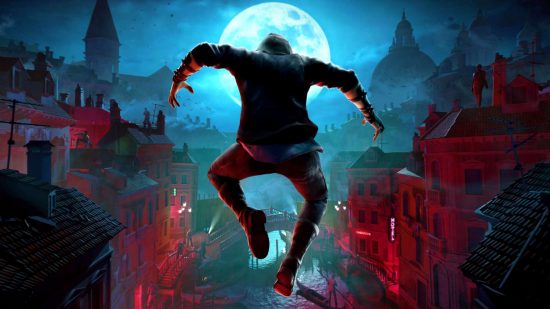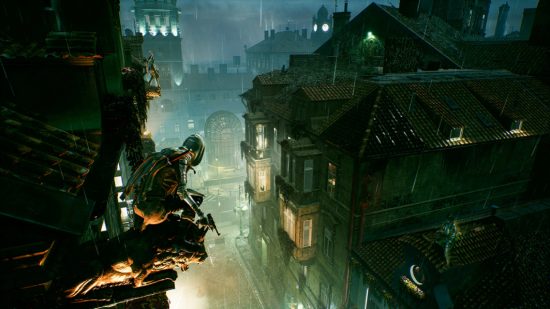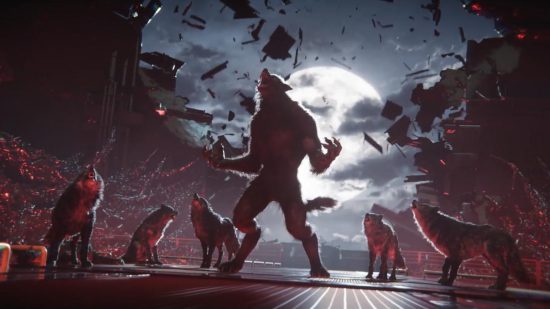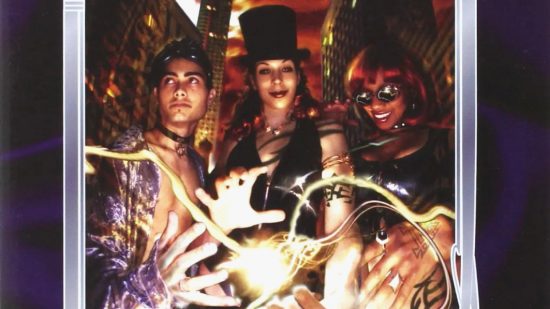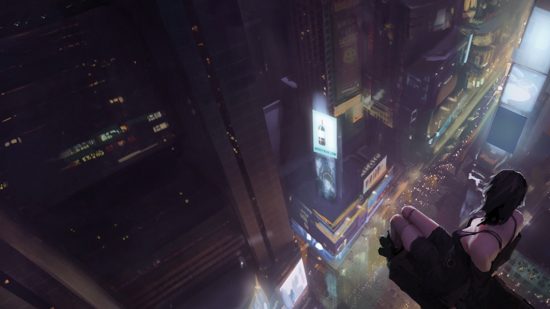From their very conception, the World of Darkness RPGs had their foundations in counter-culture. Whether you were a Vampire, Werewolf, Hunter, or Mage, one thing was consistent. You were not part of the “normal” world. You were an outcast on the fringes of society, forced to hide aspects of yourself to survive. That simple fact made the World of Darkness a great tabletop RPG for queer storytelling.
Yet the World of Darkness has a controversial history when it comes to LGBTQ+ people, and minorities in general. The World of Darkness’ lore is a bizarre, unfiltered mess. Its many sourcebooks act as snapshots of their respective eras. For every tasteful piece of representation, there’s another controversy waiting in the wings.
Casual fans may look towards Vampire: The Masquerade as the obvious example of LGBTQ+ representation. After all, vampires and sex seem like one of those things that just “make sense” on a surface level. But the nature of vampirism in Vampire: The Masquerade prevents it from fully exploring sexuality as a concept.
“Orientation” is just one of those mortal things that vampire Kindred are above. Most vampires treat relationships as a transaction of power. In that sense, vampires are tolerant because they just do not care.
Camarilla aligned Vampires try to retain as much of their humanity as they can and may view sexual orientation as a part of being human. But their sexuality is instrumental, part of a philosophical struggle to maintain an identity they must inevitably shed.
Werewolf: The Apocalypse has a more complex relationship with its LGBTQ+ characters. Since the Garou (Werewolves) are dying out, reproduction is a matter of survival.
Many Garou reflect the values they grew up with. Conservative tribes such as the Silver Fangs will generally look down on queer relationships as it doesn’t directly progress the tribe as a whole. Progressive tribes such as the Children of Gaia likely won’t bat an eye, but may expect you to reproduce at least once to contribute to the tribe.
Mage: The Ascension has far more blatant and personal representation, both for better and for worse. ‘Tradition Book: Verbena’ made its stance on queer characters clear, particularly with the Moon-Seekers faction. A subsect of the faction, affectionately called “Queerbena” is described as such:
“They explore notions of identity and the balance of masculine and feminine within themselves. They have likened their experiences with straight society to the sort of acceptance the Moon-Seekers look for within the Verbena as a whole and with the struggle of the Traditions against the apathy of the Sleepers.”
Here, being queer isn’t treated with apathy. It’s a direct validation of the Mage’s identity. We see this in the named character Teague O’Connell, the leader of the New Hope Circle faction. O’Connell was estranged from his family for being gay and lived with AIDS before the Verbena saved him, allowing him to become who he truly is. O’Connell then shows other outcasts the dream of a brighter future via his music.
In sharp contrast to this wholesome representation is ‘The Orphans Survival Guide’ from 1998. This sourcebook for Mage: The Ascension epitomizes the counter-culture aspects of World of Darkness in hilariously extreme fashion. Written by an openly queer writer neck-deep in the grungy goth club culture of the 90s, the sourcebook is chock-full of problematic terms and scenarios.
The spirit of the sourcebook is inclusive, but it uses plenty of exclusive language. The book claims to be true to the streets, and that players should also reflect that: “In a word, the streets are rough. As such, some pretty rough types are going to be stalking your chronicle, and none of’em give a f*ck about political correctness. The streets of the World of Darkness are crawling with- [a list of the most popular slurs from the 90s]”.
The Orphans Survival Guide attempts to reconcile the paradox between a tolerant stance and this list of exclusionary invective by stating: “People say sh*t like that all the time. If you say it and mean it, there’s probably a bit of bigotry in you, though, and if you’re afraid of taking street talk into account, you’re probably playing the wrong kind of game.”
The 1990s were difficult for many movements, and the queer community was hit especially hard by the AIDS epidemic. Perhaps The Orphans Survival Guide was the author’s way of fighting back against the in-your-face bigotry so common at the time with his own brand of aggressive progressiveness. Today, the text reads as irresponsible; in general, encouraging players to use slurs in table talk does not foster inclusive game environments.
The World of Darkness has also faced queer controversy in its modern iterations. In 2018 Vampire: The Masquerade’s fifth edition ruleset was met with outrage when it related real atrocities committed against LGBTQ+ Chechnyan people to a vampire conspiracy. As a result of this incident, White Wolf’s owner Paradox Interactive put the studio on a tighter leash.
Credit where it’s due, there was rarely a time in World of Darkness’ history when it excluded queer experiences. The writers at White Wolf have also, at times, tackled those experiences carelessly. Today the World of Darkness remains a haven for the outcasts, problematic and proud, just as it has been for over thirty years.
For more thoughts on the scope for queer self-expression afforded by RPGs, Wargamer has a great article by Amber Willmott exploring why the structure of RPGs inherently makes them a haven for LGBTQ people.
Portions of the materials are the copyrights and trademarks of Paradox Interactive AB and are used with permission. This article is not official World of Darkness material. All rights reserved. For more information please visit worldofdarkness.com.
